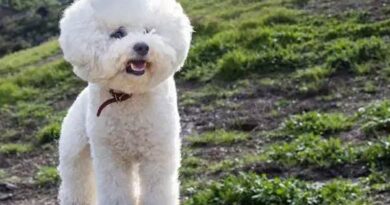What is canine behavior training
Understanding Canine Behavior Training
Canine behavior training refers to the systematic approach to modifying a dog’s behavior through various techniques and methods. This training is essential for pet owners who wish to cultivate a well-behaved and socially adept dog. By understanding the principles of canine behavior, owners can effectively address issues such as aggression, anxiety, and disobedience, fostering a harmonious relationship between themselves and their pets.
The Importance of Canine Behavior Training
The significance of canine behavior training cannot be overstated. It not only enhances the dog’s ability to interact positively with humans and other animals but also ensures the safety of both the dog and the community. Proper training can prevent behavioral problems from escalating, making it easier for owners to manage their pets in various situations, from public outings to family gatherings.
Key Techniques in Canine Behavior Training
There are several key techniques employed in canine behavior training, including positive reinforcement, clicker training, and desensitization. Positive reinforcement involves rewarding desirable behaviors to encourage their recurrence, while clicker training uses a sound to mark good behavior followed by a reward. Desensitization helps dogs gradually become accustomed to stimuli that may cause fear or anxiety, promoting a calmer demeanor.
Common Behavioral Issues Addressed
Canine behavior training addresses a wide range of behavioral issues. Common problems include excessive barking, chewing, jumping, and aggression. Each of these behaviors can stem from various underlying causes, such as boredom, fear, or lack of socialization. Identifying the root cause is crucial for effective training and behavior modification.
The Role of Socialization in Training
Socialization plays a vital role in canine behavior training. Exposing dogs to different environments, people, and other animals helps them develop confidence and adaptability. A well-socialized dog is less likely to exhibit fear-based behaviors and is more likely to respond positively to training. Early socialization is particularly important for puppies, as it sets the foundation for their future behavior.
Choosing the Right Trainer
Selecting the right trainer is essential for successful canine behavior training. Owners should look for certified professionals with experience in behavior modification techniques. It is also important to find a trainer whose philosophy aligns with the owner’s values, particularly regarding the use of positive reinforcement versus aversive methods.
Training Tools and Resources
Various tools and resources can aid in canine behavior training. Items such as leashes, harnesses, clickers, and treat pouches are commonly used to facilitate training sessions. Additionally, books, online courses, and workshops can provide valuable information and techniques for owners looking to enhance their training skills.
The Impact of Environment on Behavior
The environment significantly influences canine behavior. Factors such as living conditions, daily routines, and the presence of other pets can affect a dog’s behavior. Training should consider these environmental factors to create a comprehensive approach that addresses the dog’s needs and promotes positive behavior.
Consistency and Patience in Training
Consistency and patience are crucial components of effective canine behavior training. Owners must apply the same commands and rewards consistently to avoid confusing their dogs. Additionally, training can take time, and setbacks may occur. Patience is essential for both the owner and the dog to achieve lasting behavioral changes.
The Benefits of Ongoing Training
Ongoing training is beneficial for maintaining a dog’s good behavior throughout its life. Regular training sessions can reinforce learned behaviors and address any new issues that may arise. Engaging in continuous training not only strengthens the bond between the dog and owner but also keeps the dog mentally stimulated and happy.




